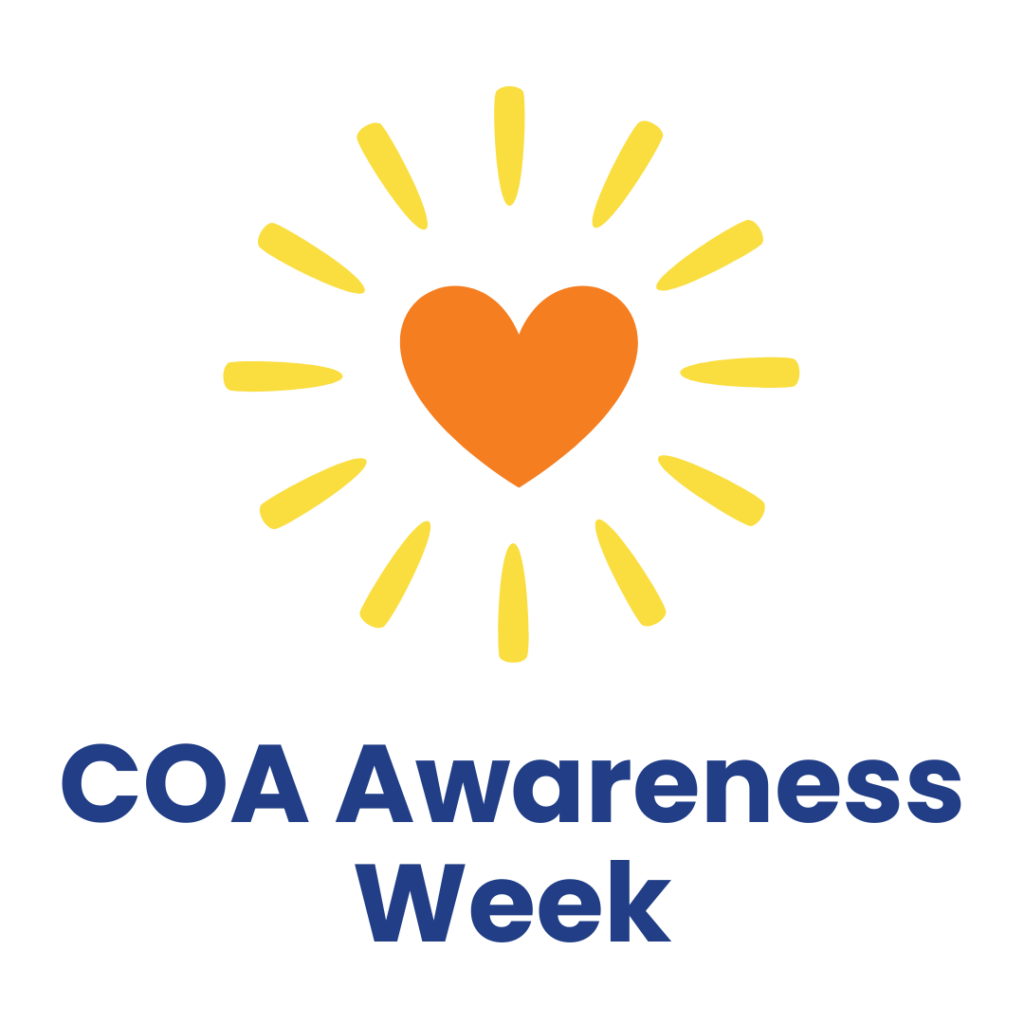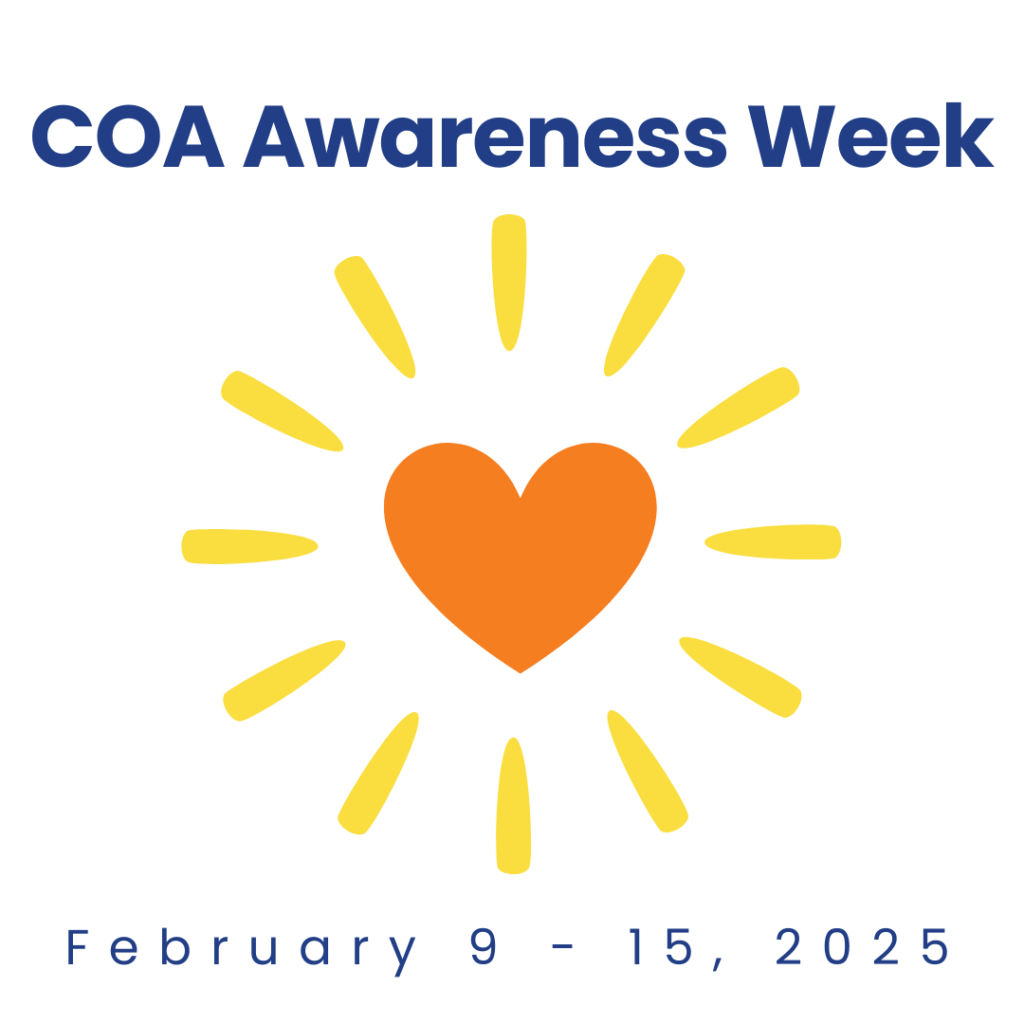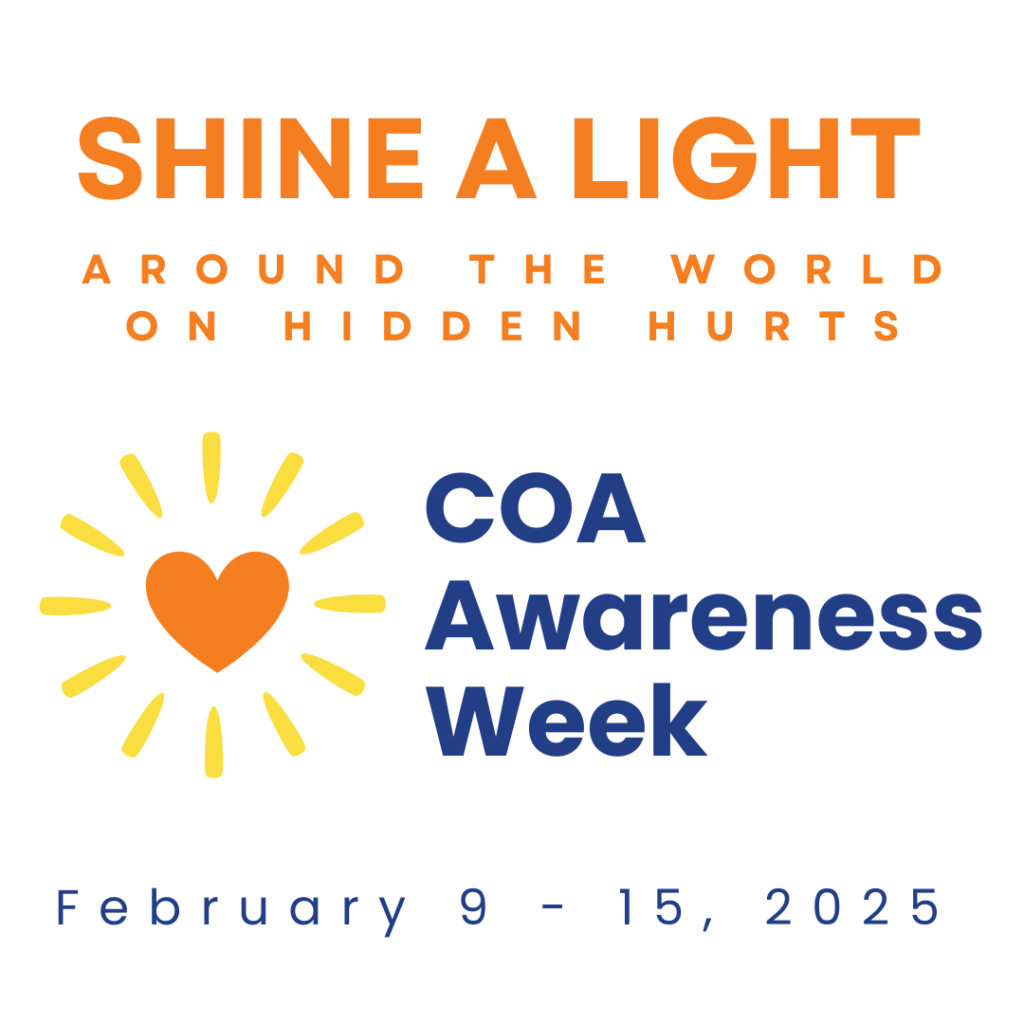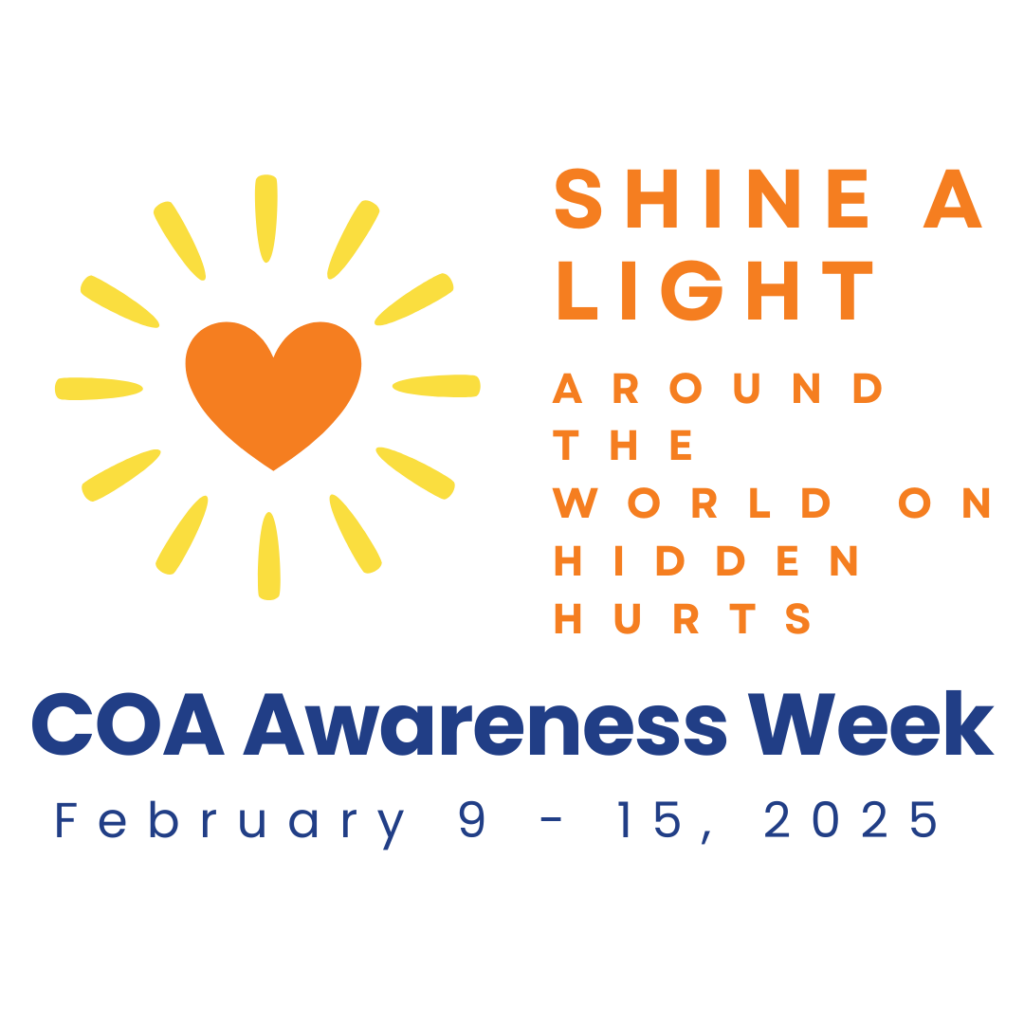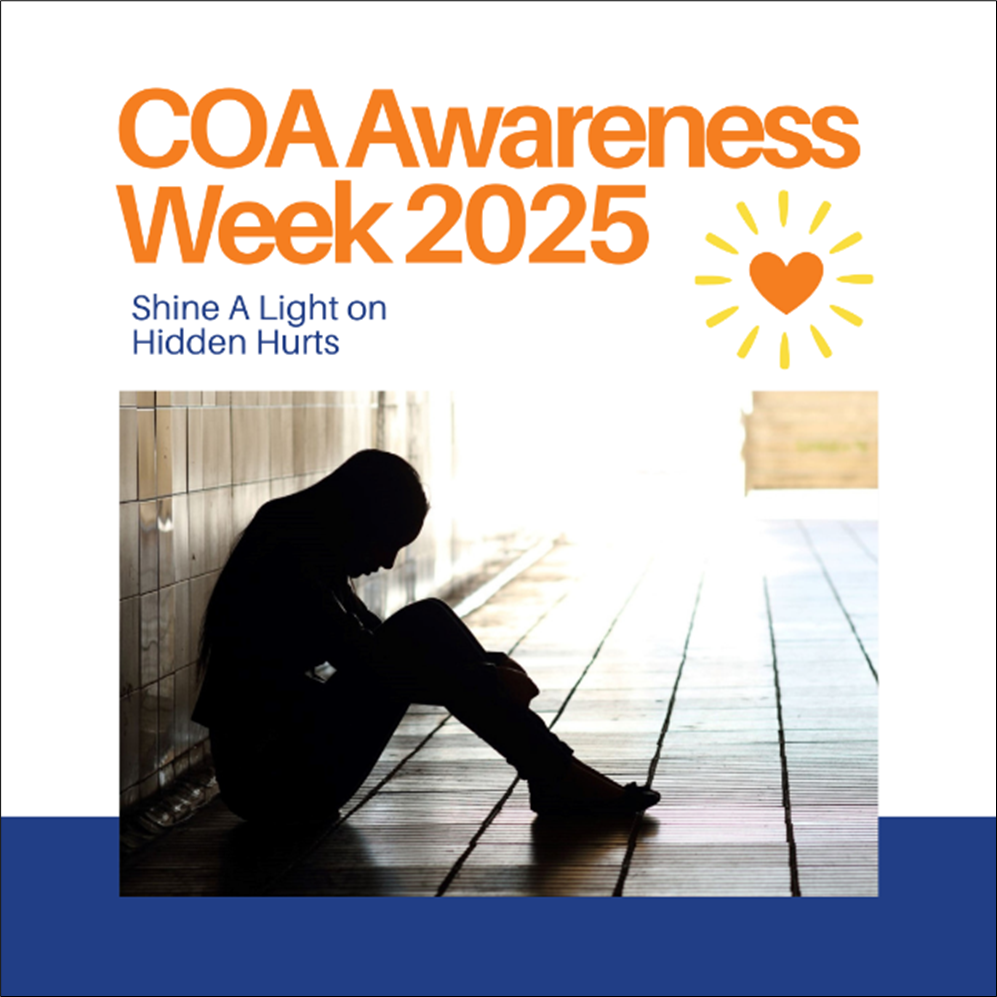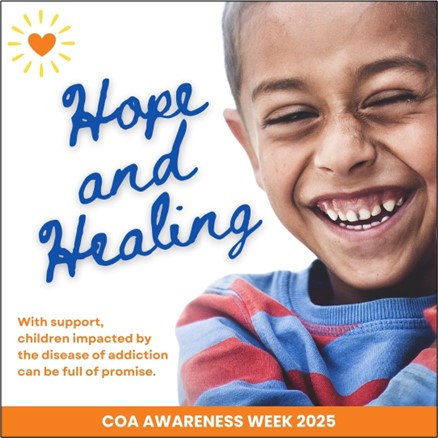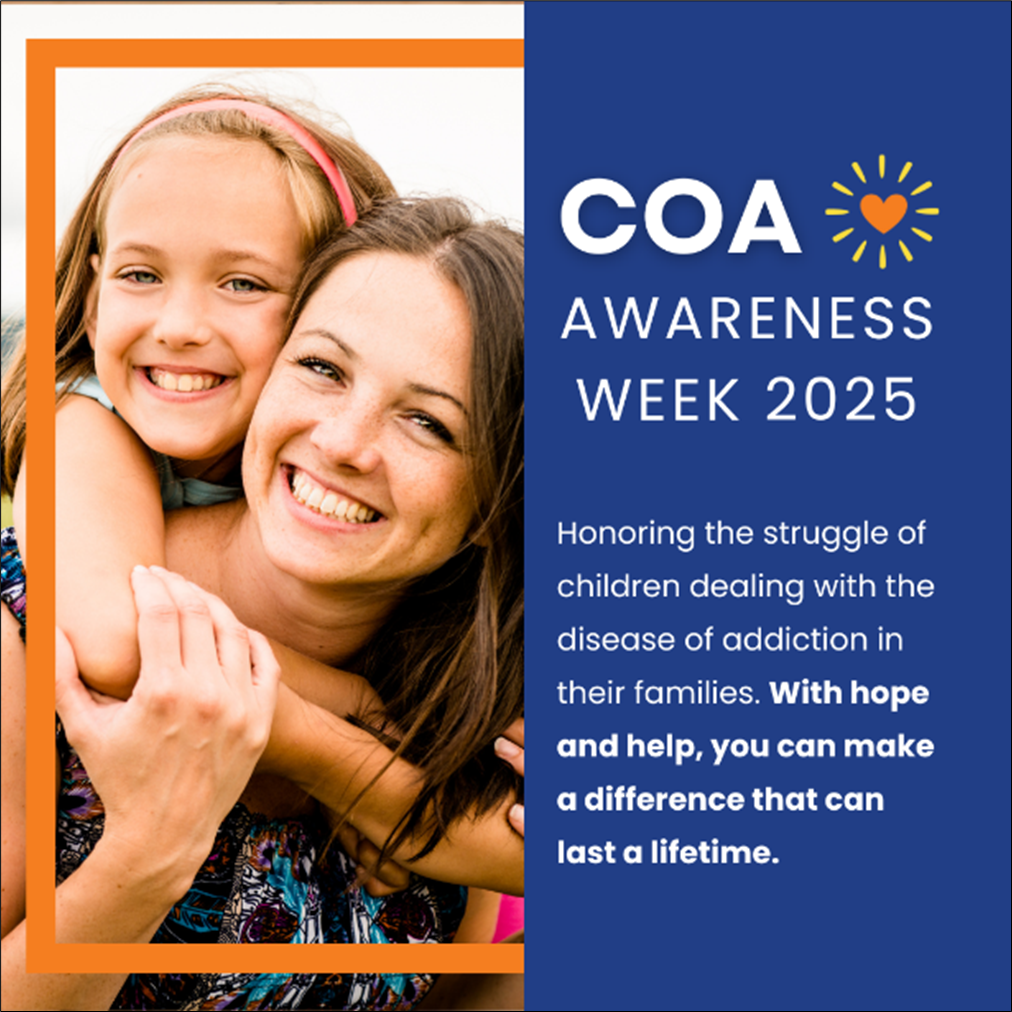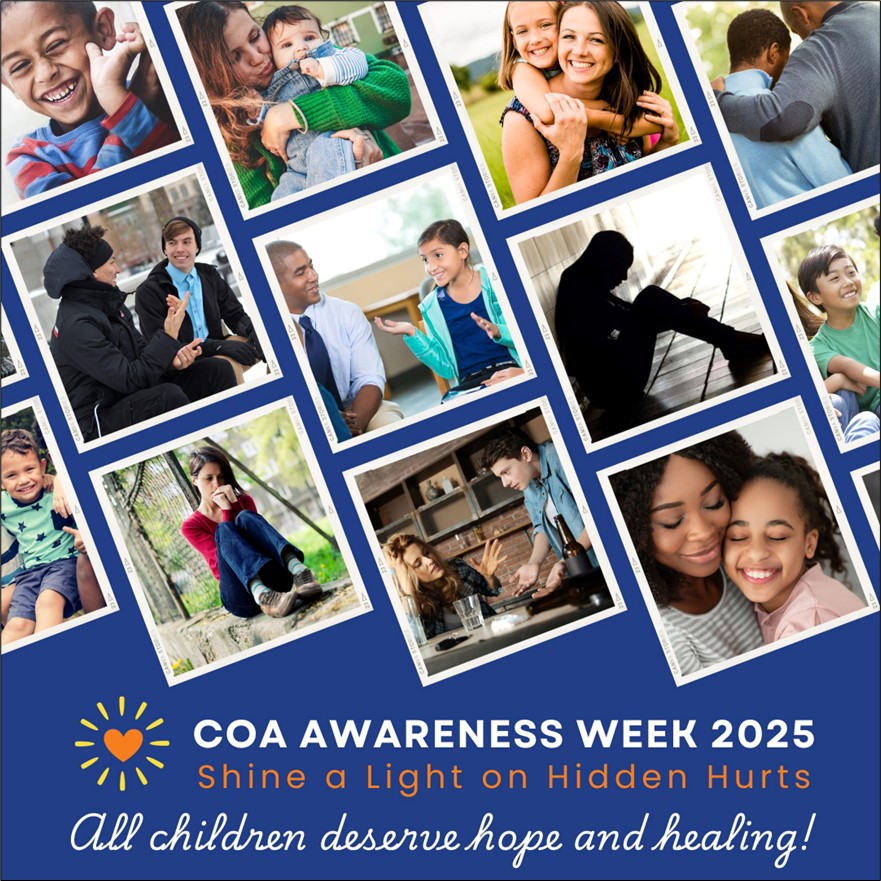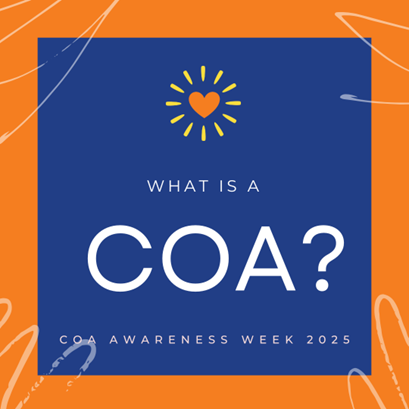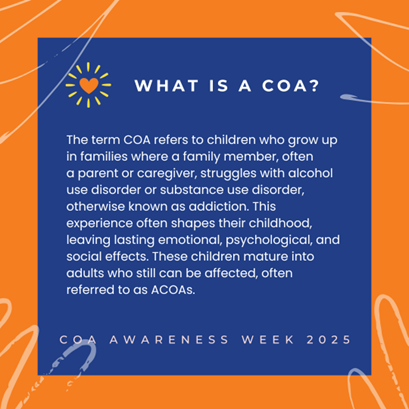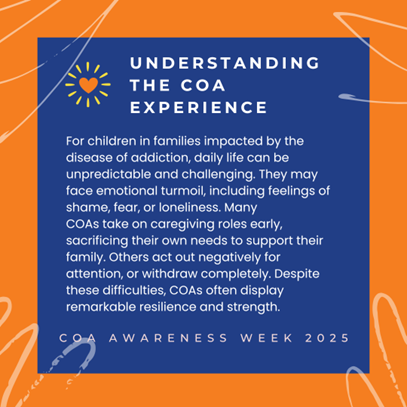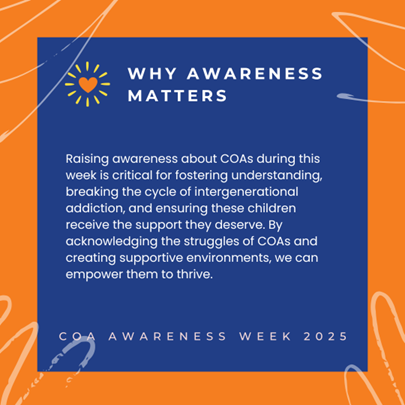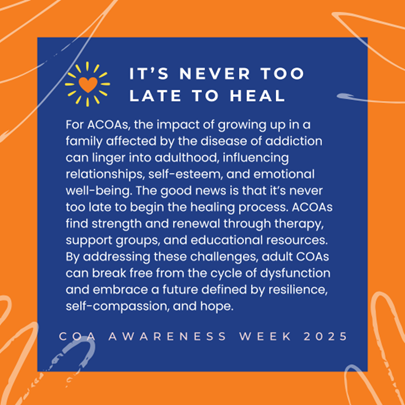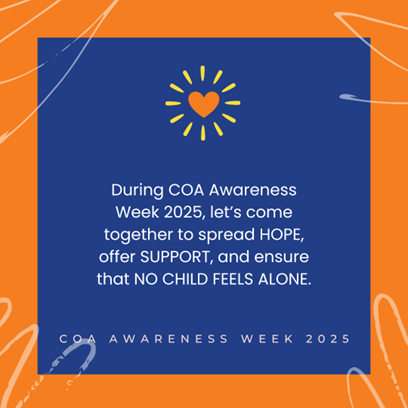COA Awareness Week 2025 Advocacy Kit
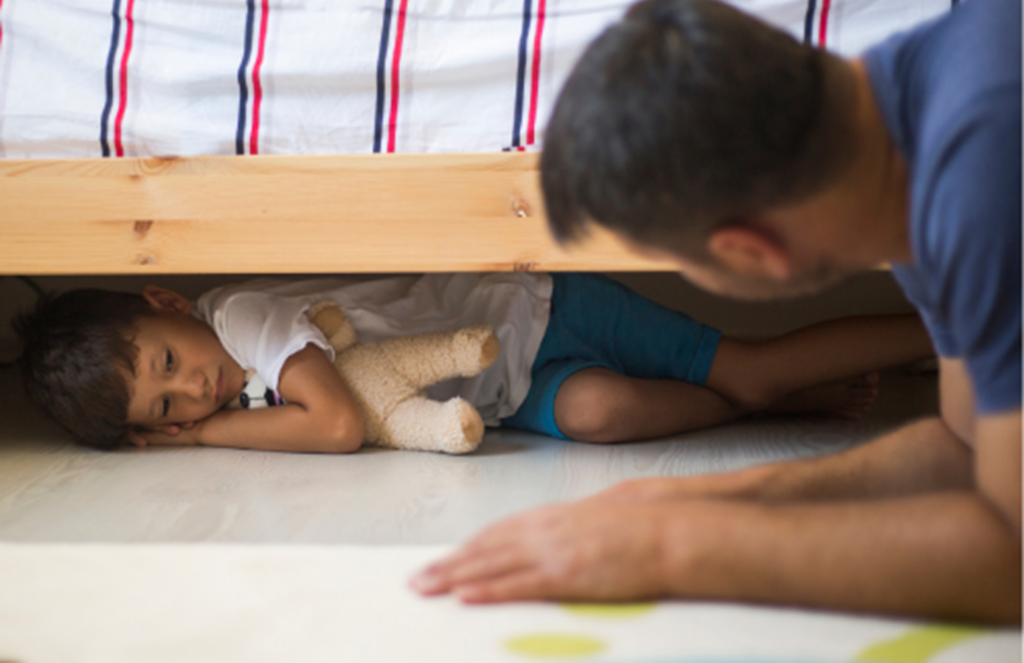


Please join NACoA in an annual tradition to raise awareness and educate communities around the world about the impact of the disease of addiction on children, the hidden hurts that result for countless kids and teens, and the hope and healing possible.
The most effective way to do this is through social media, emails, and other opportunities to engage in our communities. By sharing images and message on the social media channels you use regularly, sending emails during the week, and posting information and educational resources on your website, your organization can help people in your community with information and support. With information and support, families can understand that substance use disorders are not their fault, that they have been affected by a loved one with this disease, and that they can do things to help improve their lives. Through this advocacy, families discover they are not alone, they can admit their hidden hurts, and they can find comfort in the support and services that are available.
SOCIAL MEDIA
One of the easiest and quickest ways to reach others in the community is through social media. NACoA will be very active during COA Awareness Week. Please visit our social media channels often for posting ideas, or to share one of ours on your page. NACoA’s platforms: Facebook, Twitter, LinkedIn, Instagram.
We have provided campaign-themed images and sample social media posts to help plan your own social media strategy during the week.
SOCIAL MEDIA IMAGES
SOCIAL MEDIA POST IMAGES
SOCIAL MEDIA CAROUSEL
This is best accompanied with one of the suggested posts, a link to the COA Awareness Week Page – or information your organization or NACoA provides about the impact of addiction on children and families.
SAMPLE SOCIAL MEDIA POSTS
- #COAAwarenessWeek2025 is coming! Join us February 9 – 15th and raise awareness about #COAs. Learn more #COAWeek2025 #ShineLightOnHiddenHurts
- Together let’s help children impacted by the disease of addiction in the family. #COAWeek2025 #ShineLightOnHiddenHurts #CaringAdult #Teachers #SchoolPsychologists #Pediatricians #YouthMinisters #TreatmentCourt #YouthDeflectionSrvs Learn more
- Whether #alcohol, #opioids, #marijuana, or other substances, the pain and anguish for children living with addiction is the same. BUT IT DOESN’T HAVE TO BE THAT WAY! Learn more during #COAWeek2025 about how #caringadults can help. #COAs #ShineLightOnHiddenHurts
- Kids and teens can heal from the impact of parental addiction with proper support. Reduce the stigma and provide essential support that can help children now! #COAAwarenessWeek2025 # ShineLightOnHiddenHurts Learn More
- Kids and teens begin to heal when they learn that #ParentalAddiction isn’t their fault. #COAWeek2025 # ShineLightOnHiddenHurts Learn More
- Help kids and teens at risk become children of promise! #COAWeek2025 #ShineLightOnHiddenHurts Learn More
- Kids & #teens impacted by #ParentalAddiction begin to heal when #caringadults know how to help. #COAWeek2025 #ShineLightOnHiddenHurts Learn More
- With #HopeAndHealing, children at risk can become children of promise. #COAWeek2025 #ShineLightOnHiddenHurts Learn More
SAMPLE NEWSLETTER INCLUSION
When caring adults are safe and available for children impacted by the disease of familial addiction, they can help stop the hidden pain and isolation and help children embrace recovery and healing. COA Awareness Week honors the struggle of children around the world who are struggling and empowers them to help through education, support, and celebration of resilience that can make a difference to last a lifetime.
SAMPLE EMAIL
1 in 8 kids and teens live in families affected by substance use disorders. They are so often the first hurt and last helped, if helped at all. Without the assistance of a caring adult, the impact of living in a household with addiction can be lifelong.
Kids and Teens Impacted by a parent who misuses substances are:
• At risk of lifelong negative mental and physical health consequences
• 3x more likely to be physically, emotionally, or sexually abused
• 4x more likely to be emotionally or physically neglected, with higher rates in rural populations
• More likely to be victims of violent crime
• More likely to be involved in alcohol-related traffic crashes
• Less likely to set healthy boundaries within relationships
• More likely to lack self-awareness
• More likely to experience anxiety, depression, confusion, and anger
• More likely to experience unexcused absences and drop out of school
• More likely to have difficulty with direct communication
• Less likely to effectively regulate emotions
• More likely to be involved with the juvenile justice system
These youth are desperate for the support and understanding that can promote healing, help them embrace recovery, and continue to live healthier lives.
COA Awareness Week honors the struggle of children dealing with the disease of addiction in their families and empowers caring adults who want to help them. Together, we can make a difference to last a lifetime!
PROCLAMATIONS
A proclamation is a public or official announcement, especially one dealing with a matter of great importance. It is a written or printed document issued by a superior government executive, such as the president, governor or mayor, which sets out such a declaration by the government. It can issue policy, such as the Emancipation Proclamation. Proclamations are also used ceremonially, as an official announcement that publicly recognizes an initiative, a special event or occasion. A proclamation is a great way to build credibility for your issue, raise awareness and promote it.
LOCAL PROCLAMATIONS
WHO
Contact Public Officials: Governors, Senators/Representatives, state legislator, County/City Council Members/Mayors
WHEN
It is best to contact public officials at least one month in advance. Take into account the time of year. With summer schedules, consider contacting three months in advance of Recovery Month.
HOW
Check the website of the office which often outlines the procedure you will need to follow. If you prefer, write a letter or send an email to initiate correspondence with an official’s communications office, and follow up with a phone call.
It is good to include an explanation for the critical need to observe the campaign. When possible, detail scheduled local activities and discuss the importance of the office’s support for this “annual event.” Explain that it’s a simple way for the government to recognize the impact on the community. The office typically will confirm and communicate its decision.
If granted, publicize as much as you can. Consider creating a ceremony to receive the proclamation. If you are denied a proclamation, always write a letter of gratitude for consideration.
Set goals during the upcoming year to have influential people in your area prepare letters of support for a proclamation for you to submit with next year’s request. These types of letters can communicate the level of awareness and concern in your area, which can pique an official’s interest.
PRESIDENTIAL PROCLAMATION
Presidents “define” situations or conditions on situations that become legal or economic truth or can be policy-based with situations that have a substantial impact on economic and domestic policy. In recent years, more proclamations have been issued to spotlight important awareness campaigns. In 2023, President Biden issued 183 proclamations. Typically, it is national organizations who spearhead these efforts.
Find a sample of a local proclamation here, provided by Maureen McGlame, RFK Community Alliance – COASA, a tireless champion for children in Boston who secures a proclamation every year for COA Awareness Week.
SAMHSA provides some additional tips for proclamations here>>
GUIDELINES AND DISCLAIMER
COA Awareness Week graphics may be used for educational and informational purposes in relation to the advocacy week. Use of COA Week Awareness images does not indicate any form of endorsement/ approval from NACoA.
